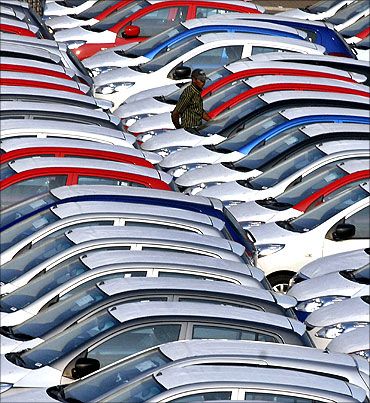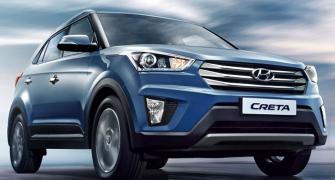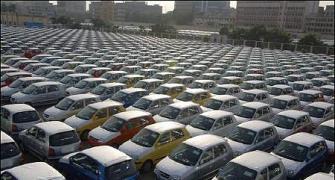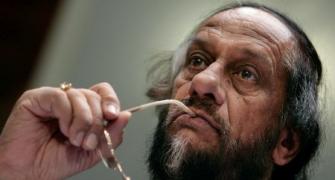
Makers argue these pollute less than petrol ones
The Supreme Court on Thursday extended the ban on registration of diesel vehicles with engine capacity of 2,000 cc and more in the National Capital Region till further orders, keeping the fate of carmakers in uncertainty.
The court said it would devote a Saturday (date not decided) to hear all parties concerned before passing its order.
The decision will have an adverse impact on companies such as Toyota, Mercedes, Jaguar Land Rover and Tata Motors.
The impact of the ban will not be limited to sales. Luxury carmaker Mercedes has warned that if the ban continued, it could lead to job losses at its dealerships and the manufacturing plant in Chakan, Maharashtra.
The December 2015 order of the court had imposed a three-month ban, effective till Thursday (see chart).
The court heard the manufacturers, who sought a modification of the last order on several grounds, claiming diesel vehicles complied with the norms.
The counsel for Mercedes and Tata, C A Sundaram, argued diesel was less polluting than petrol.
He also submitted that diesel vehicles such Sumo or Innova were not luxury cars and carried more people, and therefore, did not harm the environment very much.
The counsel for Tata Motors wanted the court to clarify that the ban does not cover heavy and medium commercial vehicles as transport authorities are refusing to register them. The court is also in favour of imposing a compensatory cess/charge on luxury diesel vehicles.
In response to the submission by automakers that the Union Budget had introduced infrastructure cess (of four per cent) on vehicles above 1,500 cc, Chief Justice T S Thakur pointed out that that levy covered roads and not environment.
There should be a compensatory charge on luxury diesel vehicle, which is different from the infrastructure levy, he said, pointing out that there should be a congestion charge also to discourage luxury vehicles. The indefinite ban on diesel vehicles puts at risk the future of diesel as a fuel in India.
Continued ban on bigger diesel vehicles will create uncertainty in the Indian automobile industry.
After the ban on bigger diesel vehicles in the NCR, few positive steps have been taken by the government such as advancement of BS VI emission norm, increase in taxes, especially on bigger vehicles through infrastructure cess, said Abdul Majeed, partner, PricewaterhouseCoopers, and an auto expert.
Companies have tried to overcome the crisis arising out of the ban.
Largest utility vehicle maker Mahindra & Mahindra has come out with a 1,990cc diesel engine for vehicles in the NCR.
The new engine launched in January has taken care of its NCR dealers who are able to sell models like Scorpio and XUV500.
Mercedes was the worst hit among luxury car makers since its entire diesel vehicle range is impacted.
Seventy per cent of Mercedes’ sales volume is diesel-driven and Delhi is a significant market, about 15 per cent of its sales.
The largest luxury car player convinced its dealers outside the NCR to give up their allocations of petrol to be made available for NCR dealers.
That has worked to a certain extent.
Toyota, however, has suffered since its two popular models — Innova and Fortuner — have not been sold in the NCR for over 100 days now.
It has seen double digit decline in monthly sales after the ban. Toyota plans to launch petrol variants of Innova.
Toyota and Mercedes did not comment on today’s decision. Companies refused to comment on the Supreme Court’s decision as they are awaiting the order
The industry is preparing for the hearing, though the court does not seem to be in any mood relent.
“We will prepare for the next hearing and put forth the arguments in favour of diesel.
Diesel is not a polluting vehicle and you cannot compare it with petrol cars.
The price of a diesel car and the taxes imposed are higher than petrol cars,” said Vishnu Mathur, director general, Society of Indian Automobile Manufacturers.
During the proceedings, when the counsel insisted that diesel vehicles are fuel efficient, the judges said that savings per kilometer did not matter to those who go for luxury vehicles.
“What classes are buying these vehicles?
They are super rich, corporate and those who want to show off their wealth.
Why should they be allowed to make others’ life miserable?” the judges asked.
The court asked the diesel car manufacturers to bring data to prove their claim.
The court also suggested a charge of some 25 to 30 per cent on the cost of the vehicles to neutralise the advantage now enjoyed by diesel car owners.
The judges urged them to devise a formula keeping in view the public interest in this matter.
“It is your city, and all of us breathe the air. Help us to reach a reasonable conclusion.
This model may be followed in other cities.”
It is not only in Delhi that diesel vehicle manufacturers are at risk.
Bihar recently proposed a ban on diesel vehicles.
The auto industry’s investments in diesel will be at risk if the other states also look at similar measures
ROUGH ROAD
The fate of diesel vehicle manufacturers continues to hang in the balance
2015
Dec 11: National Green Tribunal bans registration of new diesel vehicles in the National Capital Region till January 6
Dec 16: Supreme Court bans registration of diesel vehicles of 2,000 cc and above in the NCR till March 31, 2016, overriding the NGT order
2016
Jan 6: SC declines any relief
Jan 22: Mahindra launches 1,990-cc diesel vehicles for NCR
Feb 3: Toyota showcases petrol Innova at Auto Expo
Feb 29: Government announces infra cess of up to 4% on cars
Mar 31: SC extends the ban till further orders
The image is used for representational purpose only. Photograph: Reuters










